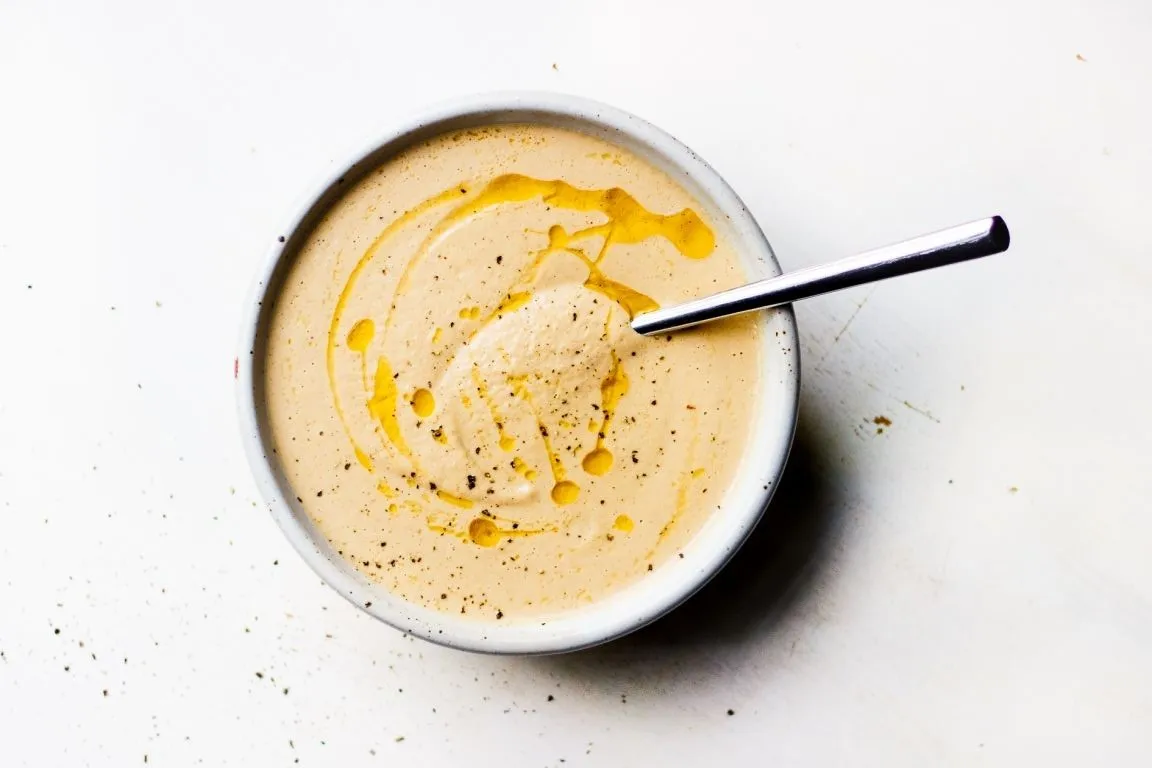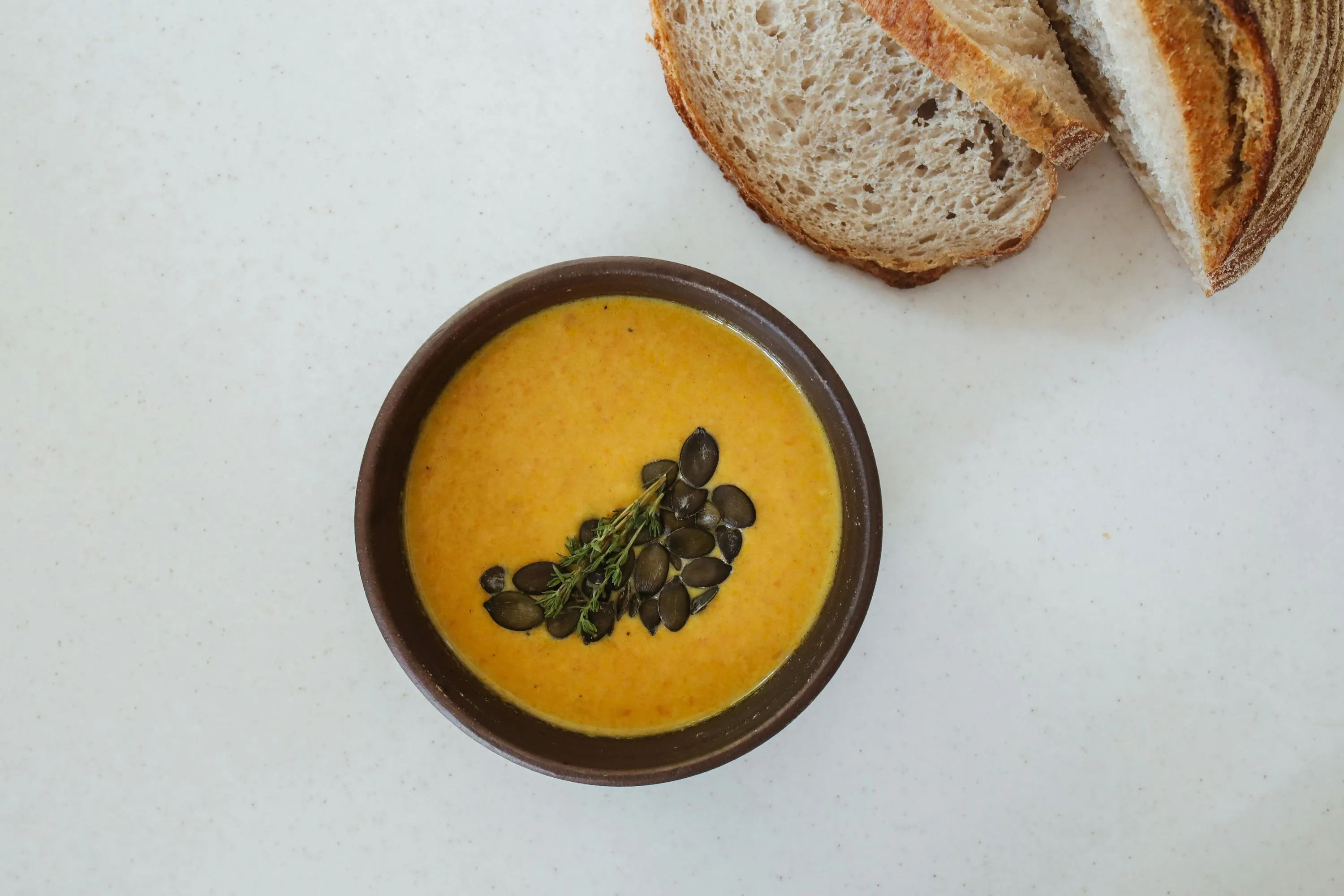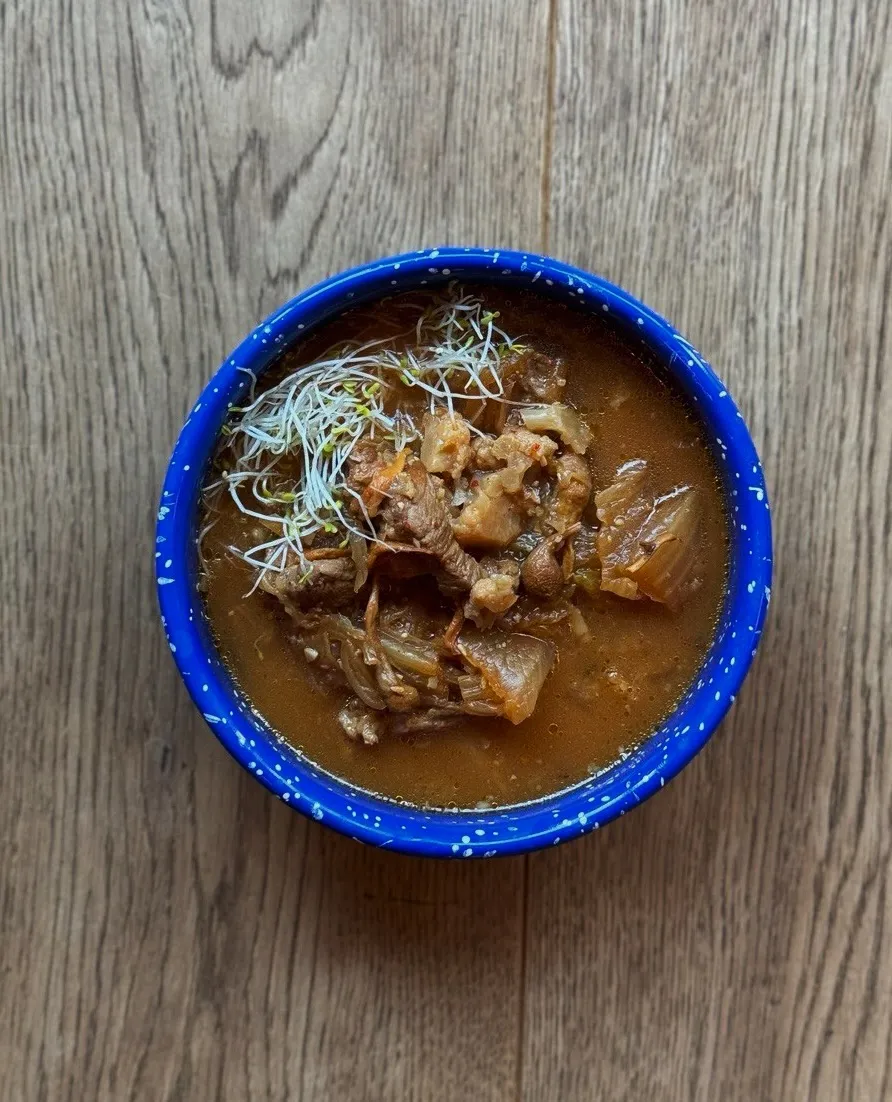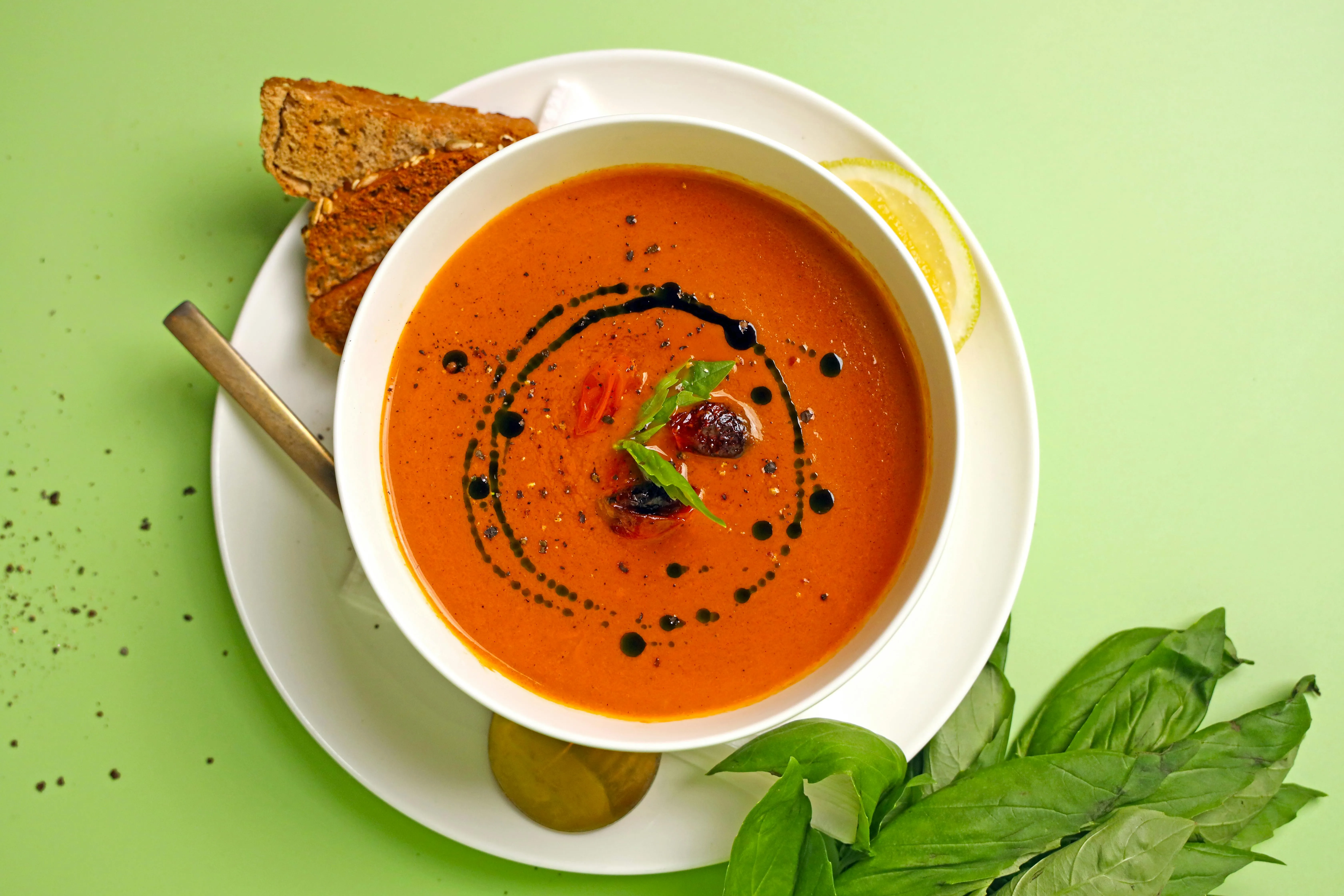
Carrots have a rather unusual reputation: an ordinary, familiar, and somewhat boring root vegetable. In my new large project, 365 Local Seasonal Products, I chose carrots as the vegetable of November. Each month, I focus on a new local and simple ingredient. Let me explain why and what makes carrots truly amazing.
This November, we are learning to eat carrots as a standalone snack, a salad ingredient, a delicious roasted side dish, and even the star of the main course. Today, we have a carrot cream soup that is 100% a full-fledged meal. Simply stewed carrots blended into a purée can indeed feel plain and a bit dull, reminiscent of old-school diet food. But roasted carrots with flax (fiber, L-glutamine) and sesame (calcium, fats, protein) create a fantastic, creamy soup. Serve it with toasted nuts, boiled quail eggs, braised duck, or enjoy it as a standalone dish.
Common Myths About Carrots
A few things frequently seen online about carrots that might raise concerns — here’s what you need to know.
Carbohydrates
Carrots consist primarily of water and carbohydrates. That’s a fact. Carbohydrates are always chains of sugars linked together. However, carrots are a relatively good source of fiber: one medium carrot contains around 2g of fiber. Fiber acts as a buffer, slowing down the absorption of sugars into the bloodstream.
Carrots also have a low glycemic index (GI), which measures how quickly foods raise blood sugar levels after eating. The GI of carrots varies from 16 to 60, depending on their ripeness and variety. Raw young carrots have the lowest GI, cooked carrots are slightly higher, and puréed carrots have the highest.
Fiber
Carrots contain both soluble and insoluble fiber, each with distinct benefits:
- Soluble fiber (pectin) acts as a prebiotic, helping beneficial gut bacteria thrive. It can lower blood sugar levels by slowing the absorption of sugars and starch.
- Insoluble fiber (cellulose, hemicellulose, lignin) helps prevent constipation and promotes regular bowel movements.
Vitamins and Minerals: The Nutritional Benefits
Carrots are an excellent source of biotin, potassium, and vitamins A (from beta-carotene), K1 (phylloquinone), and B6.
- Vitamin A: Carrots are rich in beta-carotene, which the body converts into vitamin A. This supports vision, growth, development, and immune function, including autoimmune defense (AID).
- Biotin (Vitamin B7): Previously known as Vitamin H, biotin plays a key role in fat and protein metabolism.
- Vitamin K1 (Phylloquinone): Essential for blood clotting and, in combination with Vitamin D, supports bone health.
- Potassium: A crucial mineral for blood pressure regulation and overall heart function.
- Vitamin B6: A group of related vitamins involved in converting food into energy.
Biochemistry: Phytonutrients in Carrots
Carrots contain powerful antioxidants, which contribute to immune function improvement and disease risk reduction, including heart disease, degenerative conditions, and some types of cancer.
The main plant compounds in carrots include:
- Beta-carotene: Orange carrots are super rich in this antioxidant. Cooked carrots increase absorption by up to 6.5 times.
- Alpha-carotene: Another antioxidant that, like beta-carotene, partially converts into vitamin A.
- Lutein: One of the most common carotenoids in carrots, essential for eye health.
- Lycopene: A bright red antioxidant found in red and purple carrots, associated with reduced cancer risk and improved heart health.
- Polyacetylenes: Recent studies suggest these bioactive compounds in carrots may help protect against leukemia and other cancers.
- Anthocyanins: Potent antioxidants present in dark-colored carrots.
Further Research:
https://pubmed.ncbi.nlm.nih.gov/14973107/
https://pubmed.ncbi.nlm.nih.gov/12424335
https://www.ncbi.nlm.nih.gov/pmc/articles/PMC3550877
https://pubmed.ncbi.nlm.nih.gov/22263789
https://pubmed.ncbi.nlm.nih.gov/21864090
https://pubmed.ncbi.nlm.nih.gov/6085992
https://pubmed.ncbi.nlm.nih.gov/16925866
https://pubmed.ncbi.nlm.nih.gov/14569406
https://pubmed.ncbi.nlm.nih.gov/16800779
https://pubmed.ncbi.nlm.nih.gov/23221879
- carrots – 4 pcs.
- onion – 1 pc.
- flax seeds – 1 tbsp.
- sesame seeds (raw or roasted) – 3–4 tbsp.
- smoked paprika
- smoked chili (optional)
- olive oil – 3–5 tbsp.
- salt
- water – 100 ml
- nuts – any










